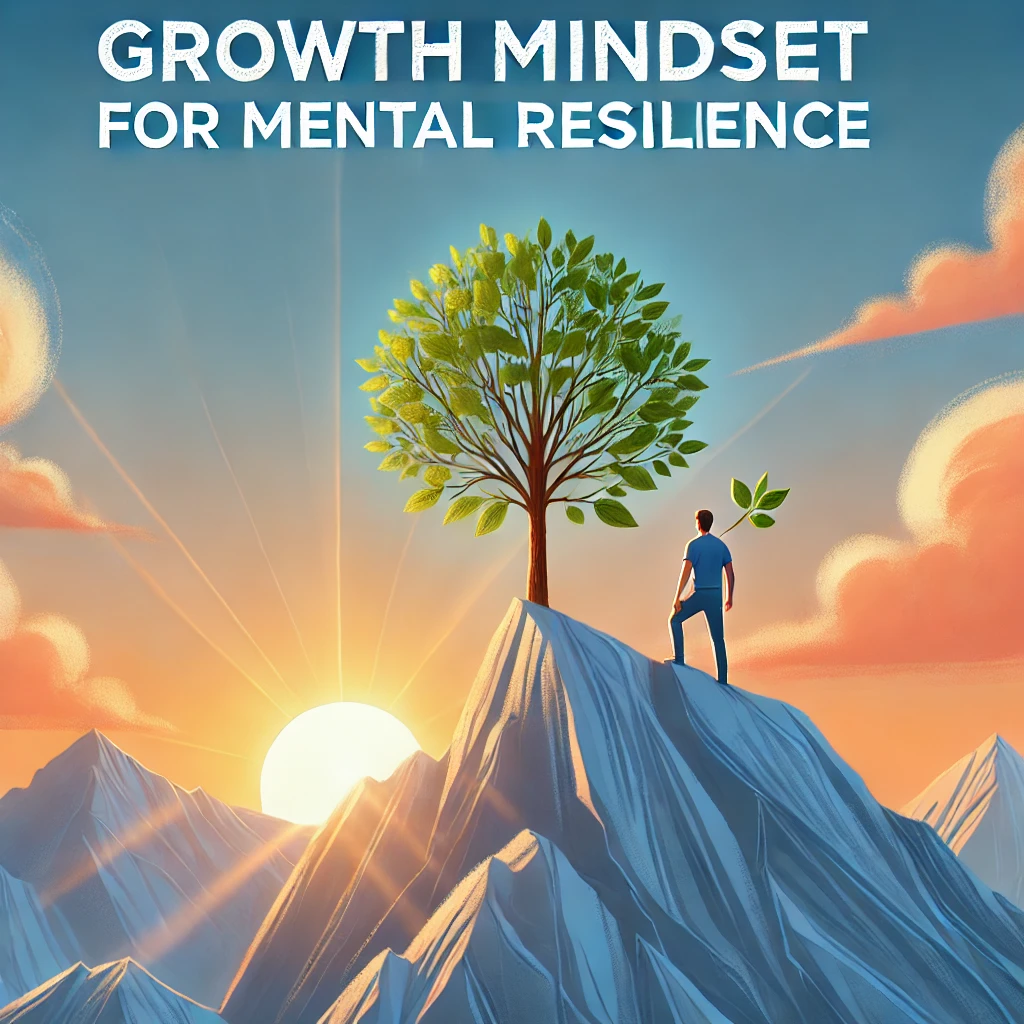In life, challenges are inevitable. Whether it’s a personal setback, a work-related obstacle, or a mental health struggle, the way we approach these hurdles can shape our overall well-being. One of the most powerful tools for overcoming adversity is developing a growth mindset. But what does that mean exactly, and how can it help foster mental resilience?
What is a Growth Mindset?
A growth mindset is the belief that abilities and intelligence are not fixed traits but can be developed through dedication, effort, and learning. Coined by psychologist Carol Dweck, this concept emphasizes the importance of resilience, adaptability, and continuous self-improvement. People with a growth mindset believe that failure is a natural part of the learning process, rather than something to be feared or avoided.
By adopting this mindset, individuals are more likely to approach challenges with optimism and persistence, which is essential for developing mental resilience.
Why a Growth Mindset is Key to Mental Resilience
Mental resilience is the ability to bounce back from adversity, stress, or setbacks. It involves staying calm under pressure, adapting to change, and recovering from difficult experiences. A growth mindset is the foundation of mental resilience because it encourages us to:
Embrace Challenges: People with a growth mindset see challenges as opportunities for growth rather than threats. They are more likely to tackle difficult situations head-on and persist even when faced with failure.
Learn from Mistakes: Instead of being discouraged by mistakes, individuals with a growth mindset use them as stepping stones to improvement. This ability to learn from failure makes them more resilient in the face of future challenges.
Stay Optimistic: A growth mindset promotes optimism because it reinforces the belief that abilities can improve over time. This positivity helps build mental toughness and equips us to handle stress and setbacks more effectively.
Seek Continuous Improvement: Developing a growth mindset fosters a lifelong learning approach. As we keep improving and acquiring new skills, we build our confidence, which in turn enhances our mental resilience.
How to Develop a Growth Mindset for Mental Resilience
Here are some practical steps to help you cultivate a growth mindset and boost your mental resilience:
Challenge Negative Thoughts: Recognize when you are thinking negatively about yourself or a situation. Instead of thinking, “I can’t do this,” reframe it as “I can’t do this yet.” This simple change in language helps shift your focus toward growth.
Embrace Effort: Understand that achieving success requires effort. Whether it’s improving your mental health or mastering a new skill, persistence is key. Celebrate the small victories along the way and view effort as a pathway to growth.
Practice Self-Compassion: Be kind to yourself, especially during difficult times. Developing resilience doesn’t mean being perfect; it’s about learning from setbacks and continuing to move forward.
Surround Yourself with Supportive People: A positive environment can reinforce your growth mindset. Surround yourself with individuals who encourage and challenge you, as they can help you stay motivated during tough times.
Set Realistic Goals: Set achievable, incremental goals that lead to long-term success. This will help you stay focused and build confidence as you accomplish each milestone.
Conclusion
Developing a growth mindset is one of the most powerful tools for fostering mental resilience. By shifting your perspective on challenges, learning from failures, and maintaining a commitment to self-improvement, you can navigate life’s ups and downs with greater ease. Remember, mental resilience isn’t about avoiding challenges, but about how you grow through them. Cultivate a growth mindset today, and build the resilience you need for a brighter future.
References
- Dweck, C. S. (2006). Mindset: The New Psychology of Success. Random House.
- Yeager, D. S., & Dweck, C. S. (2012). "Mindsets that promote resilience: When students believe that personal characteristics can be developed." Educational Psychologist, 47(4), 302-314.
- Romero, E., Villarreal, A., & Durán, J. (2014). "Growth Mindset and Academic Achievement: A Study in Higher Education." Educational Psychology International Journal of Experimental Educational Psychology, 34(3), 250-258.
